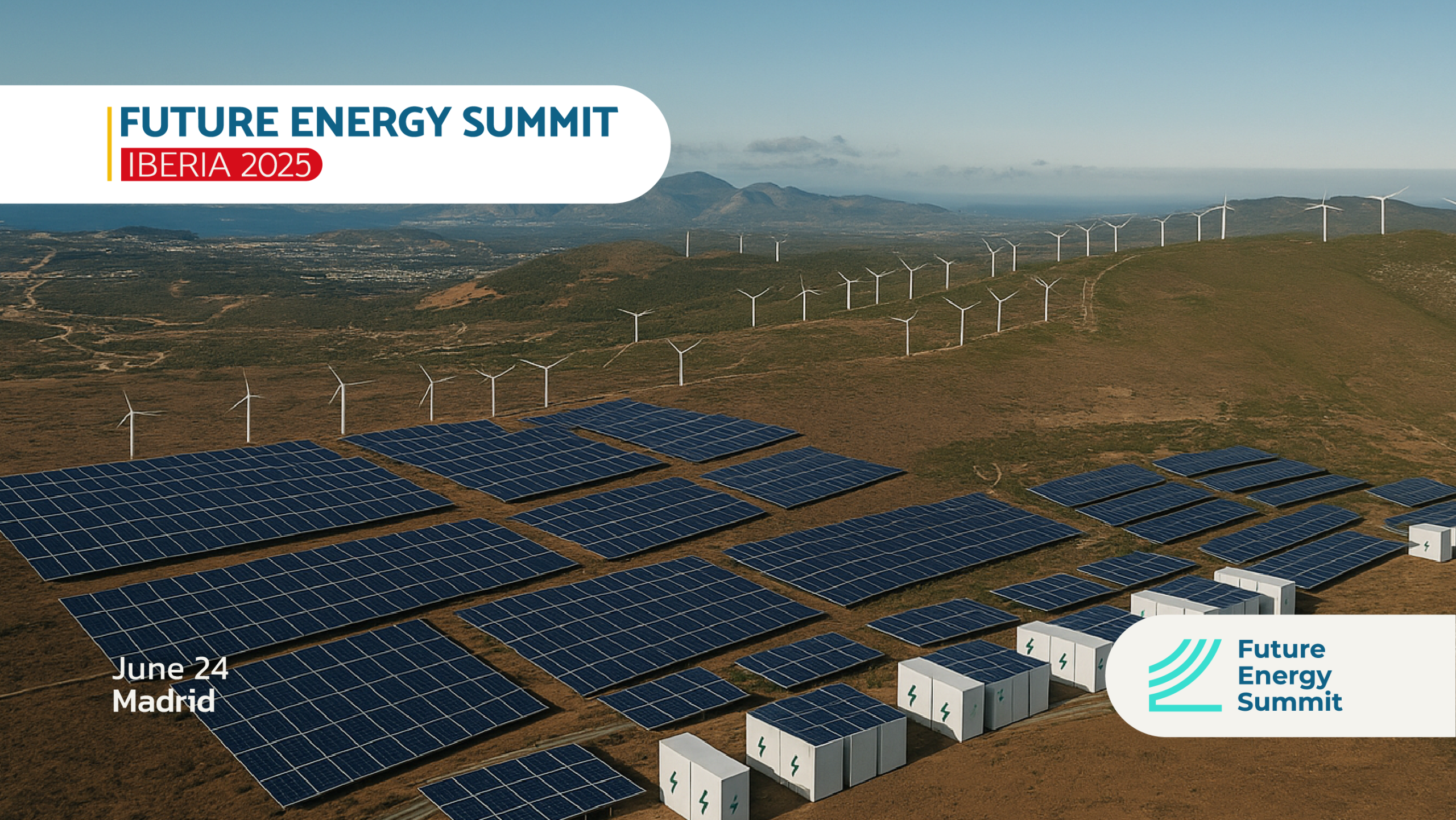The second week of May brought an unprecedented shock to European electricity markets. On Sunday 11th, from 16:00 to 17:00, the Spanish market reached a new historic hourly low of ‑€15.00/MWh.
At the same time, the German, Dutch, and Belgian markets reported prices of ‑€250.32/MWh, ‑€350.00/MWh, and ‑€462.33/MWh, respectively. These figures not only exceed the lows recorded since 2023, but also highlight a growing structural tension between the increasing penetration of renewables and the limited storage and interconnection capacity of the system. This paradigm shift will be at the core of discussions during the Future Energy Summit Iberia 2025, to be held on June 24 in Madrid—an event where all eyes will be on energy storage as a key enabler for system flexibility and market stability.
This phenomenon occurred in a context where weekly average prices rose in most electricity markets, except in Spain and France, where they fell by 20% and 62%, respectively. In contrast, Portugal – usually closely linked to the Spanish market – saw a 106% increase in its weekly average, after implementing measures to restrict electricity imports from Spain following the blackout on 28 April.
This price divergence reveals emerging dynamics in inter-market balancing, with direct implications for the formation of forward electricity prices.
On an hourly basis, the situation on 11 May was particularly critical. In the Iberian market, the period of negative pricing extended beyond the solar peak, indicating demand saturation against an inflexible supply and still-nascent storage capacity.
On Monday, 19 May, price volatility resurfaced: in Spain, the average was €12.85/MWh with a minimum hourly price of ‑€2.50/MWh, while in Portugal the average stood at €14.73/MWh. These figures suggest that volatility is no longer episodic but rather becoming a structural feature.
In parallel, solar PV production reached record highs. Portugal increased its generation by 62% during the first week of May, setting a daily record of 26 GWh on the 6th.
Spain also registered a 26% rise. At the European level, Germany maintained its upward trend, while France and Italy experienced a 13% contraction. Wind generation also showed contrasts: France boosted its output by 52% and Germany by 17%, whereas the Iberian Peninsula saw declines – Portugal by 46% and Spain by 8.5%.
This rapid growth in renewable capacity, combined with midday demand reductions and insufficient storage infrastructure, is fuelling what several analysts now call the “cannibalisation effect”: solar and wind projects, by producing concurrently, displace other technologies – and each other – pushing down marginal prices and thus their own profitability.
In markets like Spain, solar PPA prices fell by 5% in Q1 2025, reaching levels that challenge the financial viability thresholds for new developments.
Faced with this scenario, energy storage emerges not only as a technical necessity but also as a crucial economic pillar to sustain investment in renewables.
Storage as a solution
Battery costs, already below $140/kWh, are fast approaching the breakeven point of $100/kWh. Meanwhile, new support schemes such as the FEDER Programme grants – which cover up to 85% of CAPEX for storage projects, are driving renewed interest in both utility-scale and residential systems.
This paradigm shift will be at the heart of the discussions at the Future Energy Summit Iberia 2025, to be held on 24 June in Madrid. The event will gather over 400 industry executives, including representatives from Alantra, Galp, Matrix Renewables, 360Energy, Chemik, Yingli, Risen, Schletter, Repsol, EDP and BLC Power Generation.
The 2025 edition will focus particularly on renewable integration, asset valuation, flexible PPA models and business strategies combining generation with storage.
Within this framework, Chema Zabala, Managing Director of Alantra Energy Transition, will present on asset valuation and hybrid project investment; Carlos Relancio, Director of Renewable Energy at Galp, will address the integration challenges in the Iberian system; Luis Miguel Álvarez, VP Development Europe & LatAm at Matrix Renewables, will share his experience in utility-scale projects; and Benjamín Reynal, Director of Operational Coordination at 360Energy, will analyse operational efficiency and solar capacity expansion.
Beyond the technical panels, FES Iberia will include strategic sessions on regulatory opportunities in Southern Europe, offtaker strategies and a roundtable dedicated to synergies with Latin America. Discussions on hybridisation and the inclusion of ancillary services into system design will be central – particularly as demand aggregators and distributed flexibility models gain ground.
The current imbalance between generation and consumption, exacerbated by inadequate price signals and a market design still anchored in marginalist logic, demands a multilateral response.
FES Iberia 2025 positions itself as the key forum where operators, investors, and regulators can collectively rethink the technical and economic conditions for a viable energy transition, not only in the Iberian Peninsula but across Europe.
FES Iberia 2024 Recap:






























